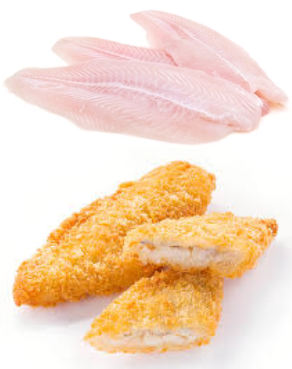The United States has consistently been Vietnam's largest seafood export market, with annual export turnover to the U.S. fluctuating between $1.5 billion and $2.1 billion over the past five years. Despite facing stringent regulatory challenges, including anti-dumping and anti-subsidy duties, Vietnam has maintained a strong position in the U.S. market due to growing demand and improving product quality.
Ms.Le Hang, Communications Director of the Vietnam Association of Seafood Exporters and Producers (VASEP), highlights that Vietnam's seafood trade with the U.S. remains relatively resilient to political shifts, including U.S. election outcomes. However, a re-election of Donald Trump could impact specific trade policies, presenting both opportunities and challenges for Vietnam’s seafood exports.
Opportunities from the U.S.-China Trade War
As the U.S.-China trade confrontation deepens, significant shifts in U.S. supply chains are likely. Reduced U.S. seafood imports from China may create openings for alternative suppliers, including Vietnam.
With shrimp and pangasius as Vietnam's primary seafood exports to the U.S., increased tariffs on Chinese seafood could present new market opportunities for Vietnamese suppliers. Vietnamese products could potentially replace Chinese imports, boosting export volumes to the U.S. Additionally, reduced U.S. imports to China may encourage China to turn to Vietnam for seafood supplies.
Amid trade tensions, global supply chains face increased disruption, which could make Vietnam an attractive alternative supplier, especially for nations seeking to bypass elevated U.S. tariffs. Vietnam's position as a reliable source for seafood in the global market could thus be strengthened.
To fully seize these opportunities, Vietnamese seafood enterprises must focus on maintaining high-quality standards, enhancing deep processing capabilities, and leveraging free trade agreements (FTAs) to expand their market reach and competitiveness.
Challenges from U.S. Trade Defense Policies
While the U.S.-China trade war creates potential openings, Vietnamese seafood businesses also face obstacles posed by U.S. trade defense policies. These include anti-dumping and anti-subsidy duties, as well as rigorous quality requirements.
Though anti-dumping duties on shrimp and pangasius and anti-subsidy duties on shrimp are expected to be more favorable in 2024, Vietnamese businesses must remain cautious and strategic. Under Trump, the U.S. government may intensify food safety and quality standards, which could impose significant compliance costs and complicate market entry for Vietnamese exporters.
Protectionist measures and tariff barriers could also heighten competition with other major seafood exporters, such as India, Ecuador, and Indonesia, making it crucial for Vietnamese companies to distinguish their offerings.
Recommendations for Vietnamese Seafood Businesses
To grow seafood exports in the face of evolving trade policies, Vietnamese companies must stay proactive and adaptable to market changes.
Exported seafood must comply fully with FDA regulations, particularly concerning hygiene, food safety, and disease prevention. Vietnamese businesses should emphasize sustainable production practices, ensuring high-quality standards from farming through processing to meet the expectations of U.S. consumers.
As American consumers increasingly value sustainability, environmental protection, and corporate responsibility, Vietnamese exporters should adopt responsible farming practices, such as clean shrimp farming, and adhere to international certifications (GlobalGAP, ASC, MSC) to boost their reputation and appeal in the U.S. market.
Providing transparent information about production processes, sourcing, and quality standards is essential to building trust with U.S. consumers and partners, including large retailers and distributors.
To enhance competitiveness, Vietnamese enterprises should focus on efficient production strategies, reasonable and transparent pricing, and swift adaptation to changes in U.S. trade measures. By adopting these approaches, Vietnamese seafood companies can better position themselves to thrive in a challenging yet opportunity-rich market.
editorial@seafood.media
www.seafood.media

